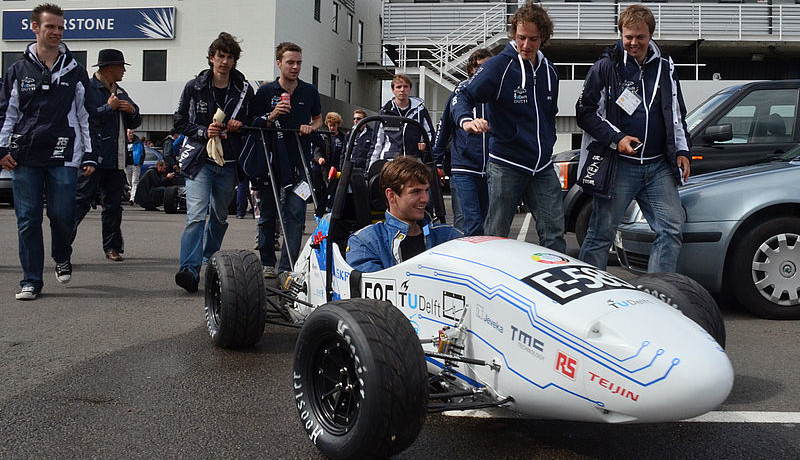After ten racing cars with combustion engines, a change-over to electric power has proved a triumph for students of the Delft Technical University (The Netherlands). Their DUT11 vehicle won the overall classification and no fewer than nine of the ten individual components straight away in their ...
After ten racing cars with combustion engines, a change-over to electric power has proved a triumph for students of the Delft Technical University (The Netherlands). Their DUT11 vehicle won the overall classification and no fewer than nine of the ten individual components straight away in their first Formula Student competition, which took place in the UK last weekend.
“We knew that we had built a good car, but I hadn’t reckoned on winning the overall electric classification straight away”, team leader Paul van Tricht told us. The Delft electric racing car was also faster than the racing cars with fuel engines, which race in a separate classification. A total of 126 teams took part in the competition in the UK, under very rainy circumstances.
The Delft students won the Formula Student Germany on two previous occasions, in 2008 and 2010. However, till now, they never won the competition at Silverstone in England. Delft students have made their name with ultra-light racing cars with small engines. These ‘lightweights’ have often beaten the much heavier powerhouses created by German universities in particular. “Naturally, we have not let go of that ‘Delft Concept’”, says Paul van Tricht. “Our first electric racing car weighs only 175 kg, which is lighter than the other electric participants. That makes a huge difference on circuits with lots of bends”.
Formula Student is an international racing and design competition for student teams. Worldwide, more than 450 university teams from around the world take part in the ten racing events on different Formula 1 Circuits. A panel of experts judges the racing cars on aspects including safety, quality and durability. In addition, the cars compete with each other in four racing components.
The TU Delft’s student project team, called DUT Racing, includes roughly 60 students. In just one year, they have designed and built a racing car with which they are taking part in competitions in the UK and Germany. The competition in Germany starts on August 2.



Discussion (0 comments)